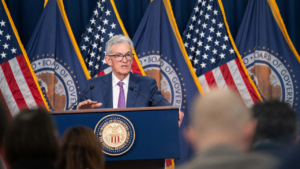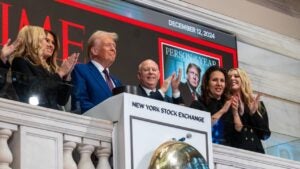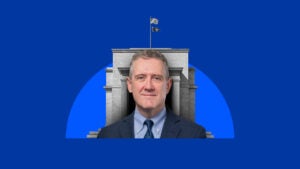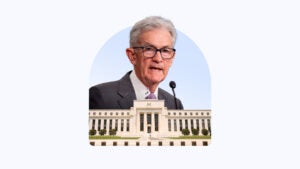Will Biden reappoint Powell as Fed chair? Here’s the latest and what experts are saying
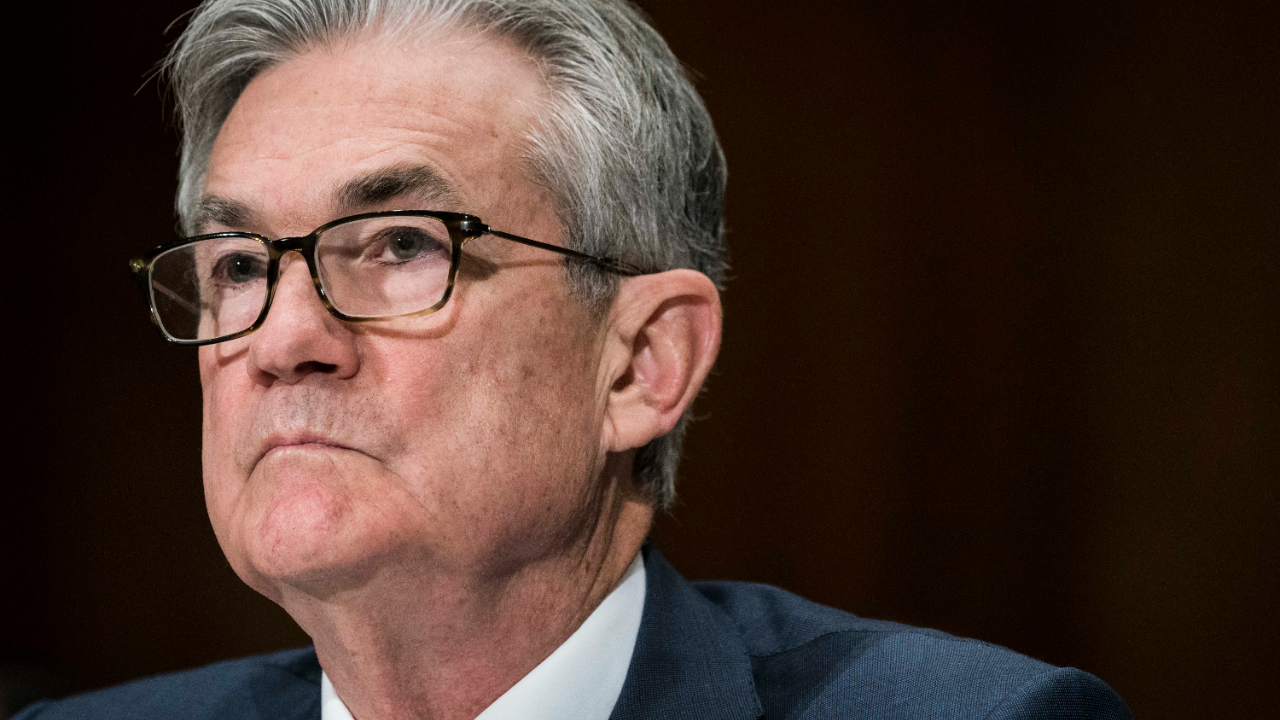
The man with more influence over your wallet than any other economic policymaker in the world is up for reappointment — and the decision to keep him around has become more divisive and politicized than ever.
Federal Reserve Chair Jerome Powell’s four-year term ends in February 2022, and President Joe Biden will soon choose whether to keep him in his seat for a second time or give him the boot.
Experts say that the chief central banker — whom President Donald Trump selected in 2017 over now-Treasury Secretary Janet Yellen — likely remains in Biden’s good graces, thanks to his aggressive coronavirus pandemic response. He’s also earned praise for guiding the Fed in mid-2020 toward prioritizing low unemployment over inflation, a move seen as helping the economy’s most vulnerable groups.
Presidents also have an incentive to keep Fed chairs in place for continuity reasons. Before Trump, Jimmy Carter was the only president in history who chose not to reappoint the Fed chief he inherited from his predecessor. The status quo may be even more vital as the Fed continues to steer the economy out of the worst recession in a lifetime.
But historical precedence and a crisis era well done might not be enough to mask what progressive Democrats see as blemishes on Powell’s record. The chair has found himself in the hot seat for his stance on loosening banking regulation and a recent Fed ethics scandal for officials’ security trading. They’ve combined to make Powell’s pending renomination feel unusually more up in the air at a time when the Fed has to figure out how to address soaring inflation and a still-limping job market.
“It’s a big deal because the economy has turned,” says Vincent Reinhart, chief economist at Dreyfus and Mellon and a former Fed official, referring to the upcoming Fed chair decision. “If getting the turn right is so critically important, you want someone you’re completely confident in to manage the turn.”
Fed’s stock trading scandal proves to be politically tricky
Powell is taking some of the blame for two regional Fed bank presidents’ irregular stock trading activities in 2020, with since-ousted Boston Fed President Eric Rosengren and Dallas Fed President Robert Kaplan selling millions of dollars worth of individual stocks at a time when the Fed was pulling out all the stops against roiled markets.
Disclosures that Fed Vice Chair Richard Clarida filed with the government’s ethics office revealed that he also moved money around from bond funds to stock funds in February 2020, one day before Powell made an emergency statement foreshadowing its first coronavirus rate cut. Powell himself sold millions of dollars worth of shares of a Vanguard total market fund in October 2020, first reported by the progressive American Prospect.
Critics, many of whom were already against reappointing Powell, say Fed officials shouldn’t have bought and sold securities at all last year and warn of insider training, given that the U.S. central bank can move markets with a single word. The board’s ethics department suggested in a March 2020 email that Fed officials avoid unnecessary trading altogether, according to a report from The New York Times.
Others question whether Clarida and Powell’s moves were made maliciously, considering that they weren’t reshuffling portfolios of individual securities. They say that the outcries also highlight an institution whose ethics policies can’t keep up with its rapidly expanding powers.
The Fed on Oct. 21 strengthened its trading rules in light of the scandal. Senior staff and Fed policymakers will soon be restricted from investing in individual stocks and bonds and are instead limited to diversified investment vehicles, such as mutual funds. They are also required to provide financial disclosures of their portfolios every 30 days, obtain approval before purchasing or selling any security and hold onto their investments for at least a year.
Officials previously were only barred from buying bank stocks and more than $50,000 worth of Treasury securities and advised against holding a security for under a month. Officials still aren’t allowed to buy and sell securities leading up to a Fed meeting.
That’s the first update since November 2017, a time when the full scope of the Fed’s lending powers during the coronavirus pandemic wasn’t on anyone’s radar.
“It’s a case in which it’s a bigger Fed with a bigger footprint in markets,” Reinhart says. “Mission creep makes the job of the Fed chair and the Federal Reserve generally more complicated because there are more things that can go wrong and there are more non-monetary policy functions that you’re going to be graded by.”
Powell also taking heat from Democrats for favoring deregulation
Under Powell, the Fed has also tweaked with key post-2008 bank rules, among them revamps to big banks’ “stress tests” and the Volcker rule that limits banks’ proprietary trading. Democratic Sen. Elizabeth Warren of Massachusetts said those moves make Powell — who supported that deregulation along with Vice Chair for Supervision Randy Quarles — a “dangerous man” for the job.
“Over and over, you have acted to make our banking system less safe,” she said at a September congressional hearing, becoming the first lawmaker on the Senate Banking Committee — the body responsible for confirming Biden’s Fed chair pick and advancing them on to the Senate — to oppose Powell’s renomination.
In a later October speech, Warren also expressed doubt that Powell was entirely innocent in the trading scandal: “It is not clear why Mr. Powell did not take steps to prevent these activities. Surely, he understands that this kind of behavior by Fed officials corrodes the public’s trust in the Fed, and that, in turn, such corrosion undermines the effectiveness of the Fed.”
[The governance issues] provide more fodder to those who objected to Jay Powell. [Warren] has a weapon to criticize Powell that she didn’t have a month and a half ago. The president is going to have to weigh his progressive credentials versus his desire for continuity and not providing a risky case study of transition.
— Vincent Reinhart chief economist at Mellon
Similar calls have come from Democratic Reps. Alexandria Ocasio-Cortez of New York and Ayanna Pressley of Massachusetts, who cautioned Biden from reappointing Powell in a joint August statement to Politico with three other House Democrats. The president should find someone more actively “focused on eliminating climate risk and advancing racial and economic justice,” the lawmakers said.
Brainard emerges as possible Powell replacement
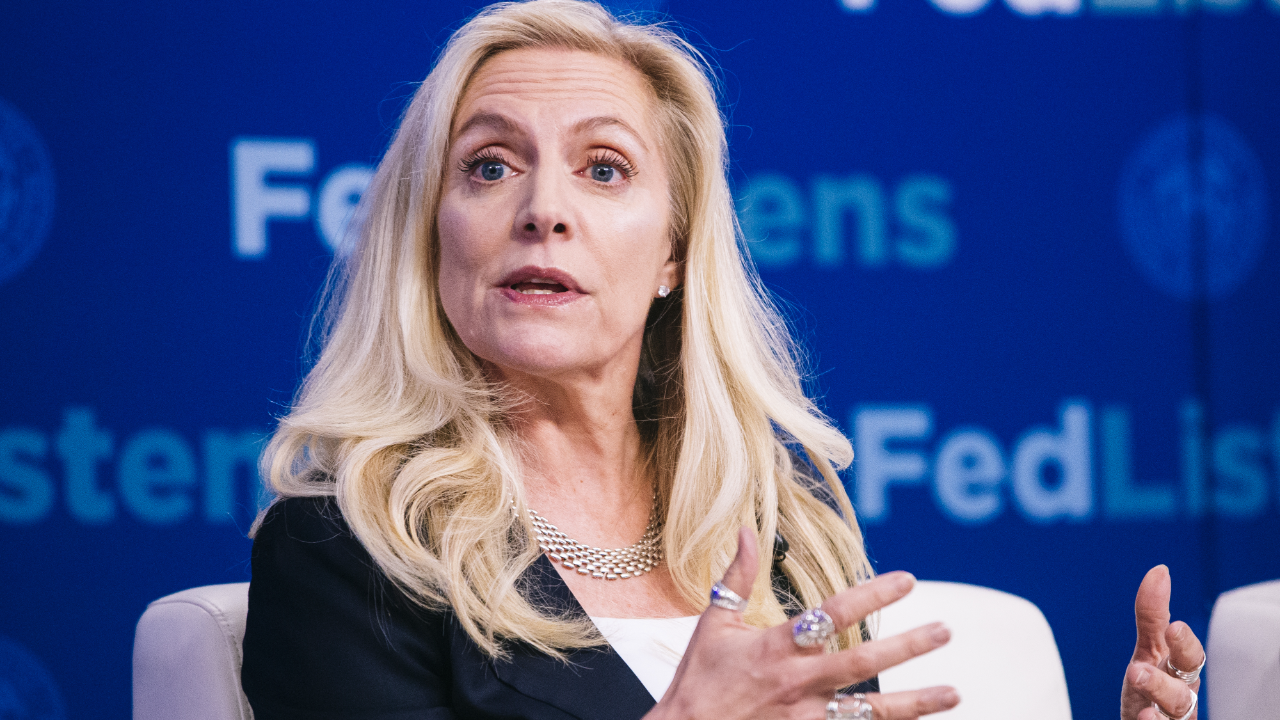
Brainard was appointed during former President Barack Obama’s tenure, and has been at the Fed since 2014. She previously served as a senior Treasury official. She’s stood beside Powell when it comes to monetary policy — though she might be even more dovish — but been his frequent foil on bank regulation.
She’s broken away from the board on 28 votes since Powell took the helm, with 23 of those dissents, according to a Bankrate tally of the governor’s voting record. That’s more so than any other official currently on the board (Quarles, in second place, abstained from two votes and dissented on one) and a milestone for the D.C. Fed outpost with a long-standing culture of following the chair.
She wrote in a October 2019 dissent that tailoring rules for lenders and adjusting stress tests would “leave the system less safe” and give big banks the “green light” to reduce the capital buffers that they built up after the financial crisis. Warren in an August Bloomberg TV interview referred to her opinions as “strong and powerful.”
Biden could reach outside the Fed or within for top job
Presidents tend to elevate officials already on the board for the top Fed post, but they’re not barred from choosing another expert in the world of macroeconomic policy — or elevating someone already within the Fed system, such as a regional Fed reserve bank president.
Atlanta Fed President Raphael Bostic, for example, mentioned he would try to steer the Fed toward addressing economic equality if he were Fed chair in a May “Axios on HBO” interview.
The long-time dove, however, has also taken a recent hawkish turn. The Fed president said in a June appearance that he was one of the seven officials at that month’s meeting who penciled in a rate hike for 2022, a year earlier than initially expected, amid soaring inflation.
Online betting website PredictIt shows about a 9 percent chance that Bostic could be appointed and even puts former Fed official Sarah Bloom Raskin at around a 1 percent chance.
Biden’s Fed pick will be about weighing priorities for economy — and Democrats
Yet, Powell has his fair share of allies. Seven of the banking committee’s 12 Republican officials have so far endorsed Powell for a second term in the top Fed job.
Fissures are appearing in Democrats’ support. Sen. Jon Tester, a Democrat from Montana, urged Biden to renominate Powell because he’s proven he can “maintain the independence of the Fed.” Yet, Senate Banking Committee Chairman Sherrod Brown, a Democrat from Ohio, indicated in an October letter that he wasn’t pleased with the Fed’s bent on deregulation.
Experts say keeping Powell in place might also be the economically safe choice, with the Fed still deep in battle against the coronavirus pandemic. The outlook also remains cloudy thanks to the Delta variant, and the Fed is starting to approach renormalizing policy as inflation soars.
The Fed chair selection is bound to move markets. Investors would likely prefer the known choice to the unknown, although the Biden administration is unlikely to go with someone bent on raising interest rates. That would bode well for the easy-money policies that some analysts say have fueled a rapid stock market rally since the coronavirus pandemic began. The S&P 500 has nearly doubled since hitting its COVID-19 bottom on March 23, 2020. On the other hand, prices are rising at their most rapid pace in decades, and a new, more dovish Fed chair might spook investors.
“There’s a strong view that ultra-low rates are good for low- and moderate-income households, but there’s a tremendous amount of evidence to prove the contrary,” says Karen Petrou, co-founder and managing partner of Federal Financial Analytics and author of “Engine of Inequality.” “Powell has been very successful in ensuring public confidence in the Fed at one of the most acute moments of a crisis it’s ever confronted; however, I do fault the Fed for perpetuating policies that exacerbate economic inequality.”
The president will have to hear out both sides of the argument and think about his own party’s priorities, especially with the 2022 midterm elections approaching. Although Fed policymaking operates independently of Congress, lawmakers can still mandate where officials focus. The next Fed chair will likely have to also grapple with the central bank’s expanding involvement in climate change and its own digital currency policy.
“There’s this sometimes but not really very historically true notion that the Fed is independent,” says Benjamin Dulchin, director of the Fed Up Campaign at the Center for Popular Democracy, a group that’s been critical of Powell’s reappointment. “Presidents appoint Fed directors who lead the economy in the direction that they want it to be lead. This is really a moment that is less about ‘yes or no Powell,’ but what are the policies that whoever is appointed is going to put in place and how is the president going to make that happen.”
Biden will have the chance to choose more than just the next Fed chair
The Fed currently has one vacancy on its seven-member board of governors. Meanwhile, Clarida’s board seat expires the same day as Powell’s chairmanship, meaning the vice chair seat could also become vacant. Quarles’ post as vice chair for supervision ended on Oct. 13, and he’s unlikely to get reappointed, though he could choose to stay on as a board member until his term expires in 2032.
Who fills what seat is also a question, making it “a complicated chess board,” as Reinhart puts it. Lawmakers might see Brainard as a better fit for vice chair for supervision than Fed chair. And with the Fed facing a diversity crisis, Biden is under pressure to appoint more women and minorities. Bloomberg News reported in September that Bostic and Raskin are being considered for the regulatory role as well.
Fed’s makeup can drastically affect your wallet
All of these moving pieces foreshadow the tug-of-war that Biden is likely feeling when it comes to making the top economic appointments of his career. Presidents historically announce their decisions in the fall before the chair’s term is up, but the Biden administration right now is in the middle of negotiating its infrastructure bill.
Doing so comes at a tumultuous time for the U.S. economy, with the job market still short of almost 5 million positions and the labor force 3 million people smaller than before the pandemic. Whoever the president selects will guide the economy toward recovery, though the Fed chair is just one among 12 total voting seats on the Fed’s rate-setting Federal Open Market Committee (FOMC).
“Every six weeks there are 12 people sitting around a fancy conference building at the Fed, and they are deciding how many they think should be unemployed to keep the economy in balance,” Dulchin says. “The consequences are huge for working people, and the president can’t ignore that.”
Learn more:
- Worried about surging inflation? Here’s 3 ways to protect your wallet from taking a big hit
- Will the Fed raise interest rates soon? Here’s what experts are saying
- The 10 golden rules of investing
Why we ask for feedback Your feedback helps us improve our content and services. It takes less than a minute to complete.
Your responses are anonymous and will only be used for improving our website.



